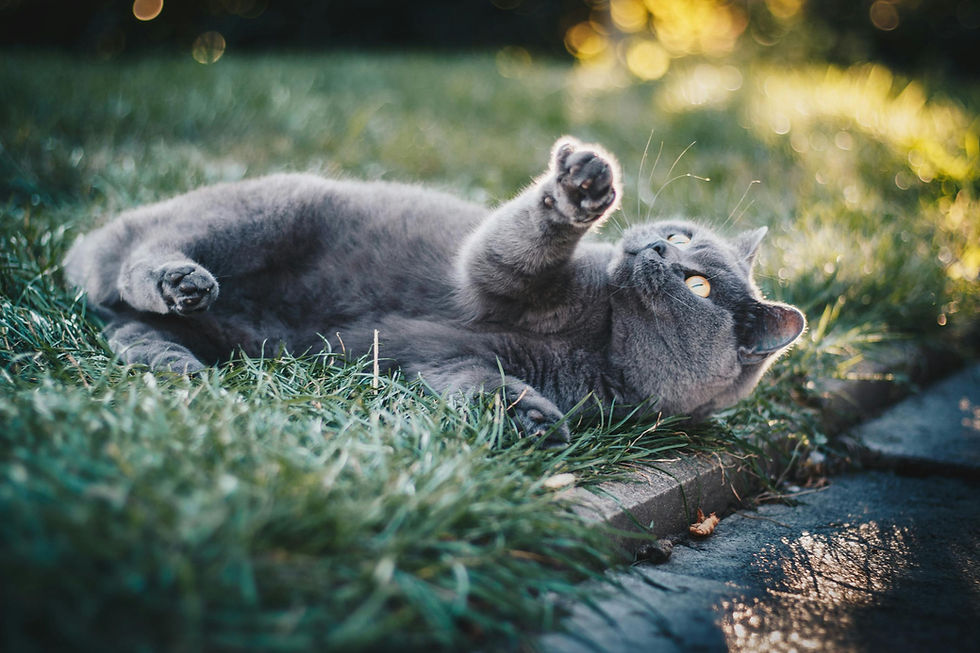3 Simple Lifestyle Adjustments for Aging Cats
- Snappy Tom Pet Supply
- Oct 11, 2022
- 3 min read

Cats enter their senior years around 11 or 12, and you may notice changes in your feline friend. Senior cats often become less active and spend more time sleeping. They may experience weight gain due to lower activity levels or weight loss because they struggle to maintain muscle mass. And in some cases, your cat may have trouble keeping up with their grooming regime.
With all that in mind, here are some simple lifestyle adjustments you can make to support your aging cat.
Regular checkups
As your cat ages, regular vet visits are more important than ever to help catch illnesses, diseases, and ailments that could be affecting your cat. While an annual checkup is recommended for any cat, senior cats should see the vet every six months.
Cats are notoriously stoic regarding health problems, so regular checkups allow you to ensure that your feline friend is in good health. Your vet will perform a physical exam, listening to your cat’s heart and lungs and analyzing their coat and physical condition, including their eyes, ears, mouth, and teeth. They may also ask you questions about your cat’s lifestyle and behaviour and whether you’ve noticed any recent changes.
Even if your cat has no health issues, your vet may make recommendations for lifestyle changes that will help them remain healthy and comfortable as they age.
Adjust their diet
Active kittens and adventurous adult cats require more calories to support their busy lifestyles, but as your cat moves into their senior years, their metabolism may not be able to keep up with their appetite.
Since mature cats often become more sedentary, it’s essential to be mindful that your cat doesn’t experience too much weight gain. After all, obesity has been linked to health problems like heart and kidney disease, diabetes, and more. If you notice your cat beginning to grow rounder, it’s time to adjust their portions. You can also use some of these helpful tips to encourage your cat to lose weight.
On the other hand, some older cats end up losing weight. Senior cats often lose muscle density, and some may become disinterested in their food. Weight loss (especially if it happens suddenly) can indicate an underlying illness, so speak to your veterinarian if it happens to your cat.
A balanced, nutritious diet will help support your cat’s longevity regardless of their weight. Snappy Tom Lites are a delicious, all-natural food that offers nutrition for cats of all ages.
Help with grooming
Senior cats may struggle to groom themselves, as twisting into certain positions may be uncomfortable. If you notice your cat doesn’t seem to be keeping their fur in top condition, help them out by adding regular grooming sessions into your pet care routine.
Depending on your cat’s fur, this might only require a couple of minutes each day. Gently brush their fur to remove loose hair and debris. You might also run a damp cloth over their coat to collect dust, just as a cat would by grooming with their tongue.
The Bottom Line
Your cat’s needs will change as they age, and by predicting some of these shifts, you’ll be well-equipped to help your cat adapt. Don’t be alarmed if you notice your cat slowing down, sleeping more, or experiencing physical changes. It’s not uncommon for senior cats to lose muscle mass or become a little more lax about their grooming routines. But, if your cat experiences sudden changes, bring them up with your veterinarian. They’ll be able to provide expert guidance to help you and your cat navigate any changes.







Comments